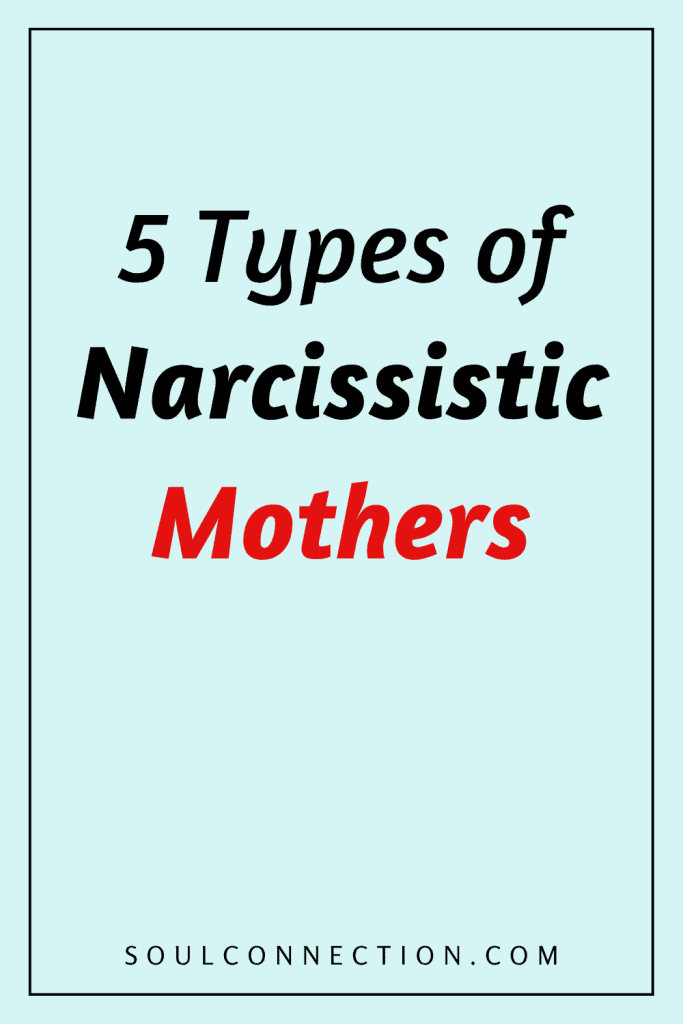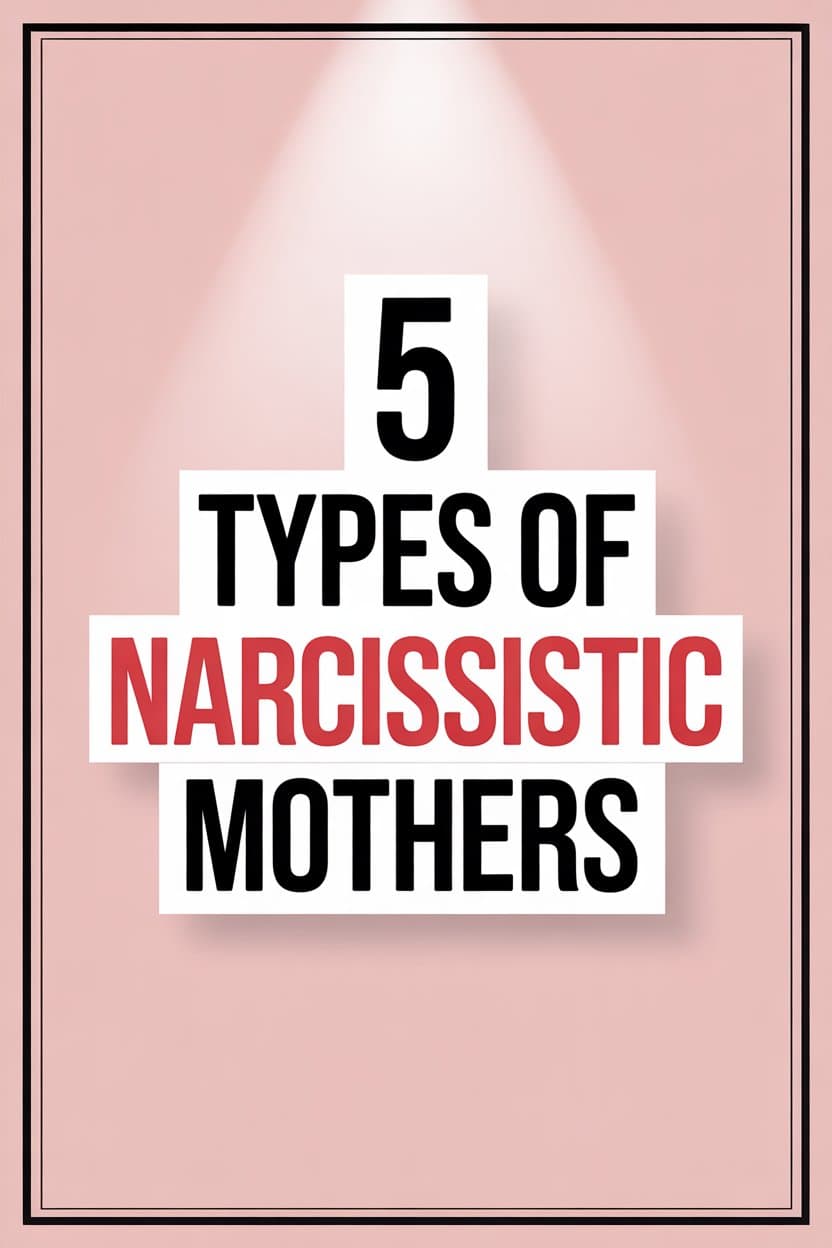Everyone claims their mum is “unique,” but when it comes to narcissistic mothers, it’s less about quirky recipes and more about emotional contortionism.
If you’ve grown up with a mother who makes Mother’s Day feel like a hostage situation, chances are, you’ve tangoed with narcissism. Let’s break it down and see which leading lady starred in your own personal soap opera.
1. The Classic Grand Dame
Not to be confused with your garden-variety drama queen, the Classic Grand Dame is the Oscar-winning, all-eyes-on-me performer.
Her entire existence revolves around being the centre of attention, and your only role as her child is “supporting cast.”
Her house, her rules, her stories (again). She’ll command an audience at family dinners, recounting tales of her own saintliness while you’re left wondering if you were actually at the same event.
Her achievements are inflated, your own barely get a mention. If you land a promotion, she once won ‘Employee of the Month’ in 1972 and will recount it until Armageddon.
When you’re in her orbit, expect guilt trips worthy of an Olympic medal. Miss a call? “Oh, I could have been dead!” Forget to compliment her new hairdo? Clearly, you don’t love her enough.
How to cope tonight:
Limit the standing ovation. Offer polite acknowledgement, then gently redirect the conversation. Try “That’s brilliant, Mum. I’m curious, did you ever feel nervous before big events?”
It scratches her itch for attention—without you getting lost backstage.
2. The Martyr
If sighing were a competitive sport, the Martyr would hold the gold medal. She sacrifices, suffers, and struggles—loudly, and with a side of emotional blackmail.
Her favourite phrase: “After everything I’ve done for you…”
She’ll remind you how many nights she stayed up “worrying sick” (which may or may not be true), how she never bought herself new shoes just so you could have ballet lessons, and how she’s still paying off your braces. Even if you paid her back.
Guilt is her currency; nothing is too small to be tallied on her ledger. Joyful moments are tinged with reminders of her sacrifices. After all, you “owe” her happiness, don’t you?
How to cope tonight:
Thank her for what she’s done—once. Then, sidestep the guilt. Try, “I really appreciate that, Mum, but I want you to enjoy things for yourself too.”
Sometimes, the best way to take the wind out of a Martyr’s sails is to suggest she treats herself.
3. The Golden Mother
On the surface, the Golden Mother appears supportive—glowing with pride at her child’s every move. But there’s a twist: she’s only supportive as long as you mirror her values, opinions, and life choices.
Bring home a career she approves of? You’re “the best child ever.” Choose a path she can’t brag about to her friends? Suddenly, you’re the prodigal disappointment.
Conformity is key. The Golden Mother isn’t invested in your happiness—she’s invested in how your achievements reflect on her. Her love is conditional, and her praise has more strings attached than a puppet show.
Trying to assert independence? Expect emotional withdrawal, dramatic sighs, or the silent treatment. Step out of line, and you’ll see the shine fade fast.
How to cope tonight:
Draw clear boundaries and be consistent. “I know you wanted something different for me, but this is important to me.” No need to over-explain. Her approval is nice, but your happiness shouldn’t dangle from her keychain.
4. The Critic
No good deed goes unpunished here. The Critic believes constructive feedback means “construct you from scratch.” She can spot a flaw faster than a sniffer dog at customs.
Your report card? Never good enough. Your new haircut? “Interesting… but have you considered something more flattering?” The Critic will find room for improvement even if you’re the Queen’s own stylist.
Her words cut deep and her standards are always just out of reach. The underlying message: if you change enough, maybe you’ll finally be worthy of her approval.
Living with the Critic can feel like you’re in a never-ending audition. The applause never comes, but the notes just keep piling up.
How to cope tonight:
Filter the feedback. Take what’s useful (if anything) and let the rest slide. Try, “Thanks for your input, Mum, but I’m happy with my choice.”
And then, do exactly what you want. Your value doesn’t hinge on her rating scale.
5. The Enmesher
Privacy? Boundaries? Not in this house. The Enmesher sees your life as a seamless extension of her own, and she’s got opinions on everything—right down to your breakfast cereal.
She’ll read your texts, “just checking.” She’ll decide what’s best for you, because you’re “so much like her at that age.”
Have friends she doesn’t like? Prepare for sabotage. Want to move out? She’ll paint a picture of a cruel world, just to keep you close.
The Enmesher’s love is suffocating. She means well (sort of), but her need for closeness leaves no room for you to develop your own identity. Every choice you make is up for negotiation.
How to cope tonight:
Lock your phone. (Kidding… mostly.) But serious boundary-setting is vital. State clearly, “I need some space and privacy to figure things out for myself.” Repeat as needed.
You’re allowed a life that’s beautifully, unapologetically your own.
Why This Matters for Your Own Well-being
Surviving a narcissistic mother is tougher than assembling IKEA furniture without instructions—but it can be done. Spotting her type is step one. Step two: choosing how you participate in the drama (or not).
If you’ve spent years auditioning for her approval, it might feel wrong to set a boundary or ask for space. But your relationship with yourself matters more than any starring role she’s cast you in.
Practice self-compassion. Seek support from friends, partners, or a therapist—preferably one who doesn’t remind you of your mum.
And remind yourself that love isn’t a reward for compliance. It’s something you deserve, straight up, no strings attached.
Healing Is Possible (And No, You Don’t Owe Her Your Sanity)
No mother is perfect. Some come with “quirks,” and some come with the emotional punch of a soap opera villain. If you’re reading this because your mother’s antics still tie you in knots, you’re in good company.
Healthy boundaries aren’t selfish—they’re essential. Your emotional well-being deserves the same TLC you once gave your school lunch box.
Yes, change is hard. Yes, old patterns are stubborn. But you can re-write the script, one small, boundary-affirming act at a time.
Go easy on yourself. And if you ever needed permission to put yourself first—consider it granted.


